Safari adventure holiday, Zambia, Malawi and Mozambique
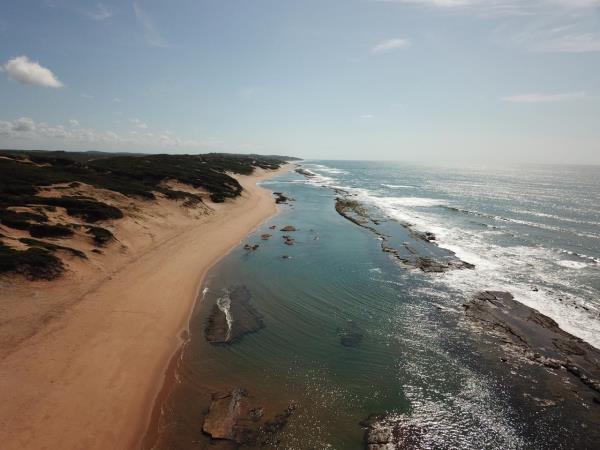
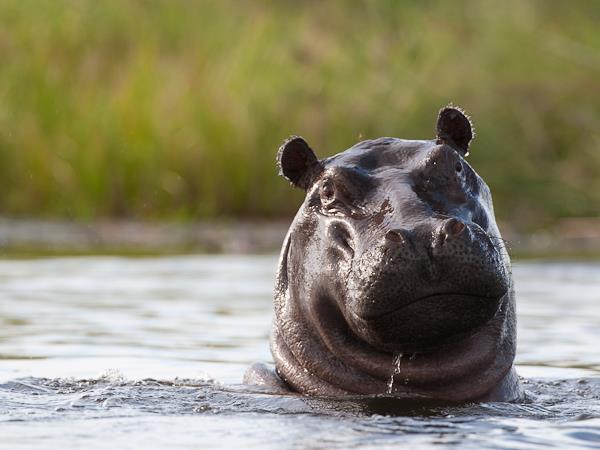
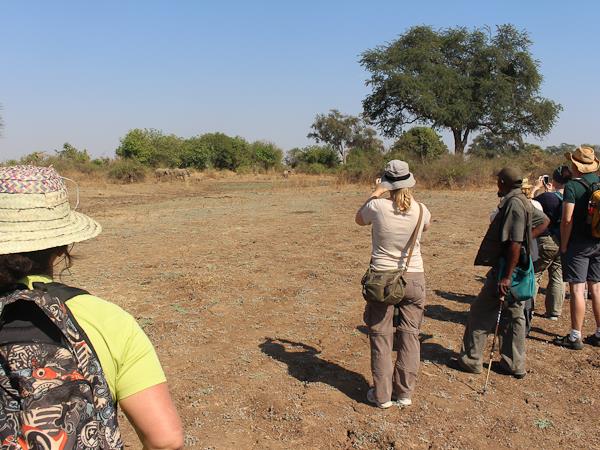
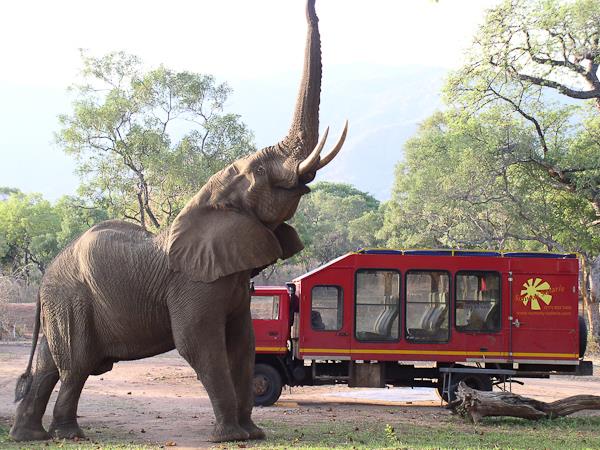
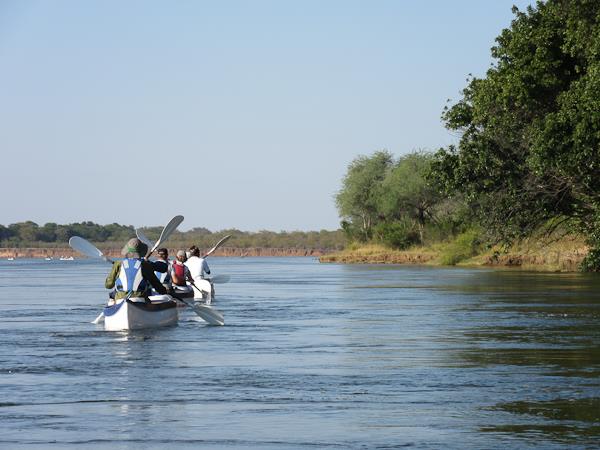
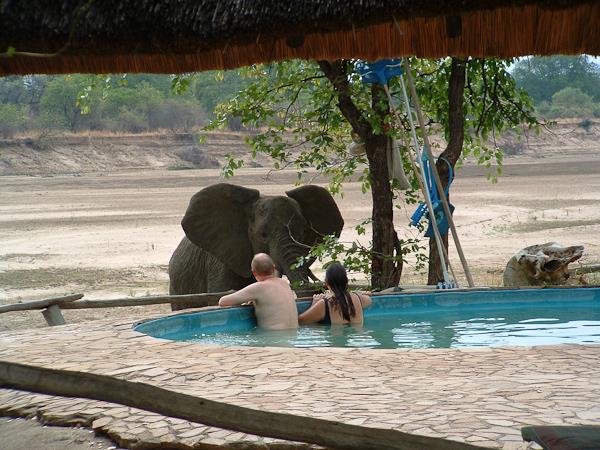
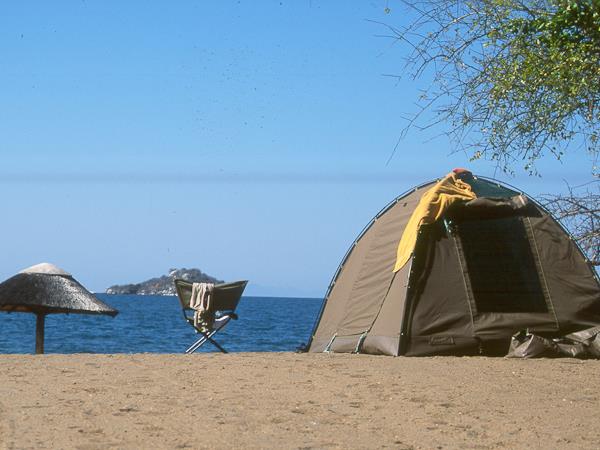
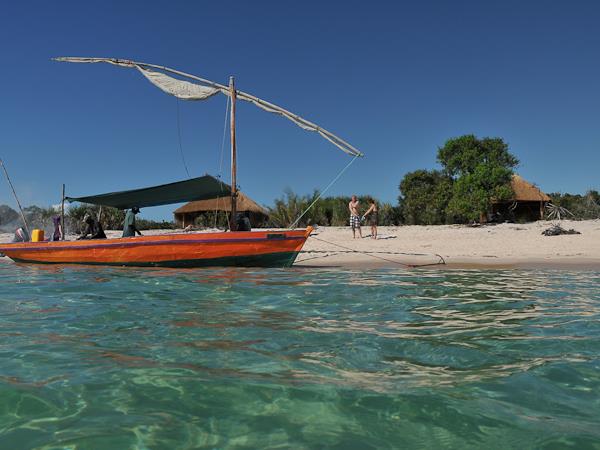
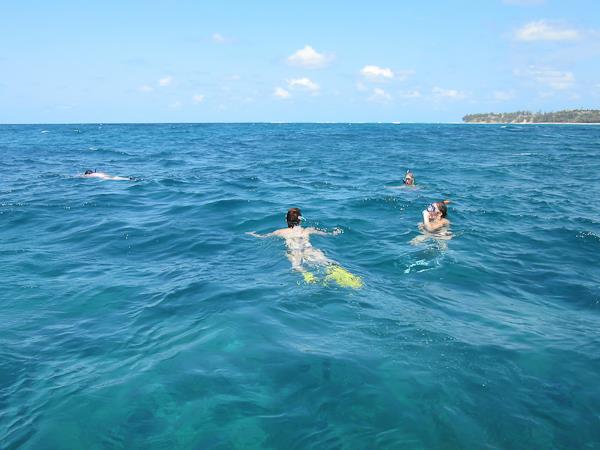
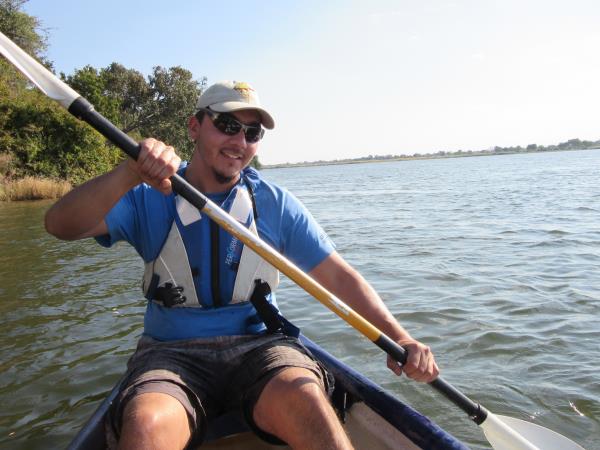
Description of Safari adventure holiday, Zambia, Malawi and Mozambique
Journey along the old trade routes across south eastern Africa on this 22-day camping safari from Livingstone to Johannesburg via Victoria Falls, Lake Malawi, South Luangwa and Kruger National Parks and the pristine coral beaches of Mozambique.
This is a real African adventure that will see you kayaking on the Zambezi River, watching the sun set over Lake Malawi, snorkelling in the warm Indian Ocean and tracking big game on bush walks in one of Africas best national parks. Youll also be passing through small local villages, stopping at markets and learning about local life along the way.
You and your small group of fellow like-minded travellers will be exploring by safari truck, ideally suited to gravel roads and more remote journeys, all led by expert expedition leaders. Note, malaria phrophylaxis is recommended for this trip.
Your safari includes 21 breakfasts, 19 lunches and 16 dinners which will be provided by the crew, prepared at the vehicle and eaten around the camp fire or in the boma. The breakfast in Petauke & the last dinner will be provided by the lodge.
A key part of this safari is participation; putting up and taking down your tent, helping with the washing up and pitching in with other camp duties. This is the real essence of this trip; a down-to-earth, hands-on adventurous expedition through some of Africas most spellbinding areas.
Map
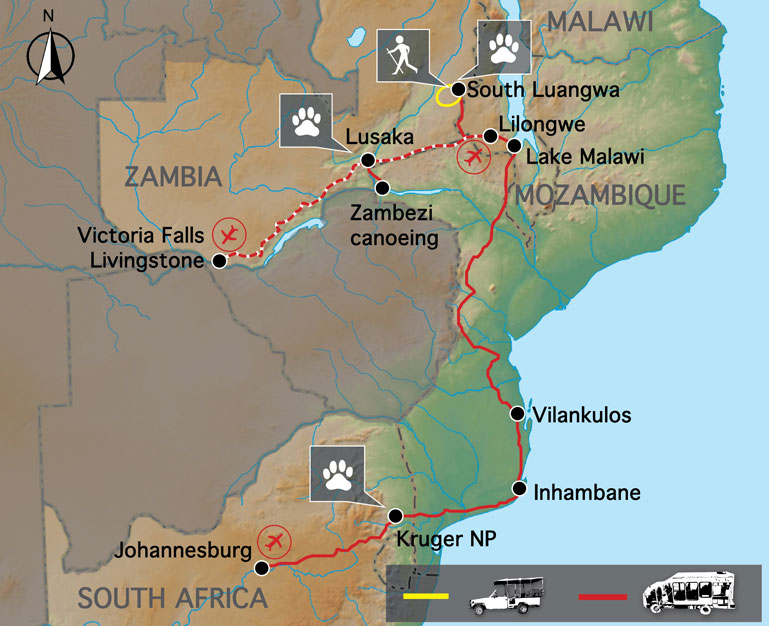
Price information
Check dates, prices & availability
Travel guides
Holiday information
Reviews
1 Reviews of Safari adventure holiday, Zambia, Malawi and Mozambique
Reviewed on 26 Aug 2019 by Gyongyi Dr Valisko
1. What was the most memorable or exciting part of your holiday?
South Luangwa NP seeing 3 leopards the same day, I really enjoyed the canoe trip on Kafue river.
2. What tips would you give other travellers booking this holiday?
Winter time can be chilly (5-6 C during the night, windy, humid) in Africa, we had to buy extra blankets (it was cheap, PEP the baby shop had excellent ones)
despite the sleeping bag with us. Be prepared to have long and bumpy rides with potholes, music, books etc can come handy. No wifi for days (e.g. Krόger no
wifi at all...)
3. Did you feel that your holiday benefited local people, reduced environmental impacts or supported conservation?
N/A
4. Finally, how would you rate your holiday overall?
It was a good one, although overlanding doesn't allow too much interaction with local people. Would have been nice just to stop to see a village and a local
market
Read the operator's response here:
Lower Zambezi support local guides. South Luangwa support the local guide and conservation of the South Luangwa National park. Lake Malawi support local guide. Bazaruto Islands support local guide. By travelling on a small group tour with 12 clients and 2 guides the carbon footprint is dramatically reduced.
On a route like this there are some very long days so stopping to visit with locals on route is not as easy as you think. EG - With a full truck of 12 clients it takes an average of 7-10min for all to leave the vehicle. Another 7-10min to re-enter the vehicle. 30-40 min in the village maybe longer adds up to an hour or more. Most of these days on this route are long and having an extra hour added to the itinerary could make the days longer . We also do not allow our guides to drive at night so adding time to days they would fall behind the timing plan of the tour.
Responsible Travel
Planet
Message from co-Founder of this Tour Operator. My name is Bruce and I am a founder of this tour operation. I believe that the old conservation tactic of the setting aside areas of "exclusion" for conservation are outdated.The reality is that in order for effective, sustainable conservation to take place, there needs to be an interest from the society of that country, conscious effort from government and local "buy in" from the local communities. Sadly the world is in a place where economic benefit is the overriding driving force of action and as such conservation is directly linked to economic benefit. Sustainable tourism is therefore absolutely essential for conservation to be effective. Not only for local communities to see value in conservation, but for countries as a whole to place value in protecting their natural heritage.
I believe there is a deep and instinctual link between our humanity and our natural environment. Inherently we all want to know that the wild places are still out there. And Eco-tourism gives us that opportunity, as we so often hear, to "rebalance" or "rejuvenate".
The various promises and commitments detailed below are only a representation of what it is that we do. I sincerely hope that our tours offer our clients an opportunity to experience the wonders of the African continent, and in some small way through focusing itineraries around wildlife and national parks, we contribute to environmental conservation both economically and spiritually.
If you join one of our trips, and have practical feasible suggestions about our responsible travel practices, please contact us. We strive to improve our operation and if we can do more for conservation in Africa, then we're all ears!
Low impact tourism & supporting local communities:
Small group travel: We specialise in small group travel with a maximum group size of 12 clients & minimum of 4. Small groups ensures a small impact on the destinations we visit when compared to larger groups. Smaller groups create an intimate safari experience, and mean that when we interact with local cultures and stay in environmentally sensitive areas, we do not leave a large footprint.
Fuel consumption: By travelling in a small group your carbon foot print is approximately ½ of self drive safari. The average pick-up car hire runs on approximately 12ltr/100km with generally 2 people per vehicle and this equates to approximately 6ltr/100km pp. Our average safari truck runs on 25ltr/100km with an average of 9.5 clients per tour and this equates to 2.6Ltr/100km pp. So, by joining a small group tour, your fuel consumption is less than half of doing a self-drive 4WD or pick up trip.
Cooking: We cook using gas as far as possible and, whenever feasible, avoiding cooking using fire or coal which depletes limited wood resources.
Wooden carving curios: We do take clients to local curio markets to support the local communities. If they want to buy a carving, we encourage clients purchase only small wooden carvings instead of large pieces. This is in an effort to again conserve the forests around the carving markets.
Waste: We ensure that we take all of our rubbish out of wilderness areas and use proper waste disposal facilities on all tours (and in the workshop, including oil traps, oil recycling, cleaning products etc).
Entrance fees: All entrance fees for the national parks in each country are used by the local authorities to maintain the condition and infrastructure of the national parks, and run regular anti-poaching patrols. These are often supplemented by government grants. The national parks support a large number of local community members often providing housing and schooling for the staff families. For us as a tour operator, supporting the various national park boards is an essential element to each tour.
Accommodation: On all tours wherever possible we use locally owned accommodation establishments which are involved in local responsible tourism initiatives. This provides direct benefits to local communities through employment. We avoid large hotel chains and more commercial properties but opt for simple self-catering lodge, B&Bs and tented camps for accommodation in rural areas. By doing this we create an intimate environment for group away from large scale tourism and the communities around the accommodation benefit directly through employment and this creates pride and further interest in sustainable tourism as the communities have tangible benefits from tourism. Our tours focus on out of the way destinations, and as such, our spend is distributed into rural areas.
Drinking Water: Each client, drinking 5 litres per day from 1 litre plastic bottles produces 100 waste plastic bottles on a 3 week safari. On this calculation, we would pollute the environment (and waste energy resources in plastic production) with over 250,000 plastic bottles per year! So as solution, each of our vehicles has a tank of clean drinking water that is filled up along the journey. This is safe tap water. We do not provide bottle water we encourage clients to drink the local clean drinkable tap water wherever possible in order to minimize the amount of plastic bottle waste produced by the purchase of bottled drinking water.
Water conservation: We are acutely aware that in many areas that we visit water is a scarce resource. Clients are encouraged to be conscious of water usage and not to take long showers or waste water.
Wildlife: On all game drives, our trained and qualified guides ensure that our groups interact with wildlife in the appropriate way. Slow movements, no loud noises and to respect the animals personal boundaries. Our philosophy is that we are visitors in the amazing places that we visit, and we do not want our presence to impact the wildlife and environment in any negative way. We also enforce a policy of not feeding any wildlife (animals habituated to human feeding will turn aggressive in the future which often results in authorities being forced to kill that animal) and to appreciate the natural state of the areas that we visit and to leave the area in exactly the same condition that it was when we arrived.
Local guides & communities: On each tour you will travel with two guides for the entire trip. In addition, we also employ local guides for certain activities on tour. These local initiatives help to maintain local cultures and also sustain the ideals of wildlife conservation. Tourism, goodwill and conservation all work together and we aim to maintain the delicate balance at all times! The employment of local guide adds value to our clients visit because they can gain specific local knowledge and expertise from the people who actually live permanently in the area they are visiting. These interactions also give our clients the chance to meet local people and see how tourism is benefiting Africa, piece by piece.
We use local guides at:
Botswana: Okavango Delta, Chobe NP, Ghanzi San Bushman excursion, national parks
South Africa: Mkuzi village walk, Qunu Mandela historical site, Kozi Bay
Swailand: Hlane walking
Lesotho: Malealea Lodge pony trekking guide
Malawi: Boat excursion on Lake Malawi
Mozambique: Dhow excursions
Namibia: Brandberg walk and drives (part of the Tsiseb Community Conservancy), Spizkoppe walk, Gariep River canoeing, Sossusvlei 4WD drivers,
Zambia: Lower Zambezi Canoe excursion, South Luangwa game walks and drives, Vic Falls optional activities
Zimbabwe: Great Zimbabwe Monuments, Matobos NP, Hwange NP, Victoria Falls
For more information on each of the community projects please talk to your guide or contact us.
Local crafts and produce: At all local markets where fresh produce and crafts are sold and produced, we encourage the clients to barter (gently and in good humour) with the local people. This not only allows the clients to get involved with the local way of life, and interact directly with the local people, but also provides them a platform to experience local life first hand. Having said that, we explain to the clients by bartering too hard for a good deal might seem like a lot of money at the time, but if the amount being haggled over is converted to either US$, Euro or GBP, it amounts to very little. This is the local livelihood and we advise them to keep this in mind at all times.
Underprivileged Children Groups: We operate a number of tours into the national parks of South Africa for underprivileged children from schools based in Johannesburg, South Africa. PEN Organisation is an independent, non-governmental and social development organisation. Its activities focus on neglected and abandoned children and orphans, as well as disadvantaged families. We try to run these tours as often as possible during the course of a year. We believe that the youth are Africas future and that environmental education is important. This opportunity allows them to see for themselves wildlife (perhaps for the first time), nature conservation at work, and also show them employment opportunities that are available in the conservation or tourism industry, and possibly encourage them to follow a career in tourism (for this reason we aim these groups at 14-18 year olds).
Wildlife Rehabilitation Centre: We assist a wildlife rehabilitation centre in Springs, Johannesburg. Judy Davidson runs a licensed rehab centre from a small holding. A variety of birds are cared for, from injured barbets, doves, and crows to a brown snake eagle, a Gymnogene, and spotted eagle owls. All birds are treated in a small makeshift clinic, and then kept in aviaries until they have recovered. Once able to fly, or care for themselves again, they are moved to a 'flight' aviary, for a period until they have regained strength. They are then released back into the wild. Those birds which are unable to be released are kept in large aviaries and fed through various donations. We assist the project with donations of practical equipment including shade netting, paint and other items on their wish list.
People
South Luangwa National Park: In the Luangwa Valley we stay at Wildlife Camp who donate 60% of their revenues to the Wildlife and Environmental Society of Zambia. The lodge is dedicated to the protection of the environment in the area, and the sustainable utilisation of this precious resource. All local communities are included in the running of South Luangwa National Park, so that they see the benefit of wildlife in a substantive way providing employment and the access to opportunities of creating wealth cuts down on the possibility of poaching in the park and in the long term the conservation of wildlife in the area. In South Luangwa our local guides who take us on game drives and game walks all come from the community that live in the area that surround this national park. They battle with the threat of elephant damaging crops, big cats killing cattle and people, so the importance of this community involvement in tourism cannot be under estimated.Popular similar holidays
Lower Zambezi and Kafue National Park holiday, Zambia
From £5700 - £6970 11 days excluding flights
Authentic safari at two rustically luxurious wild camps
Zambia safari holiday, tailor made
From US $6925 10 days including domestic flights only
Explore Zambia's great parks on this tailor made adventure
Luangwa and Luambe safari, Zambia
From £3650 - £3990 9 days excluding flights
Big game in the South Luangwa and time to explore Luambe



















